synergistic interaction of pollution control and carbon reduction! BEWG provides suggestions for green development 2021-10-22
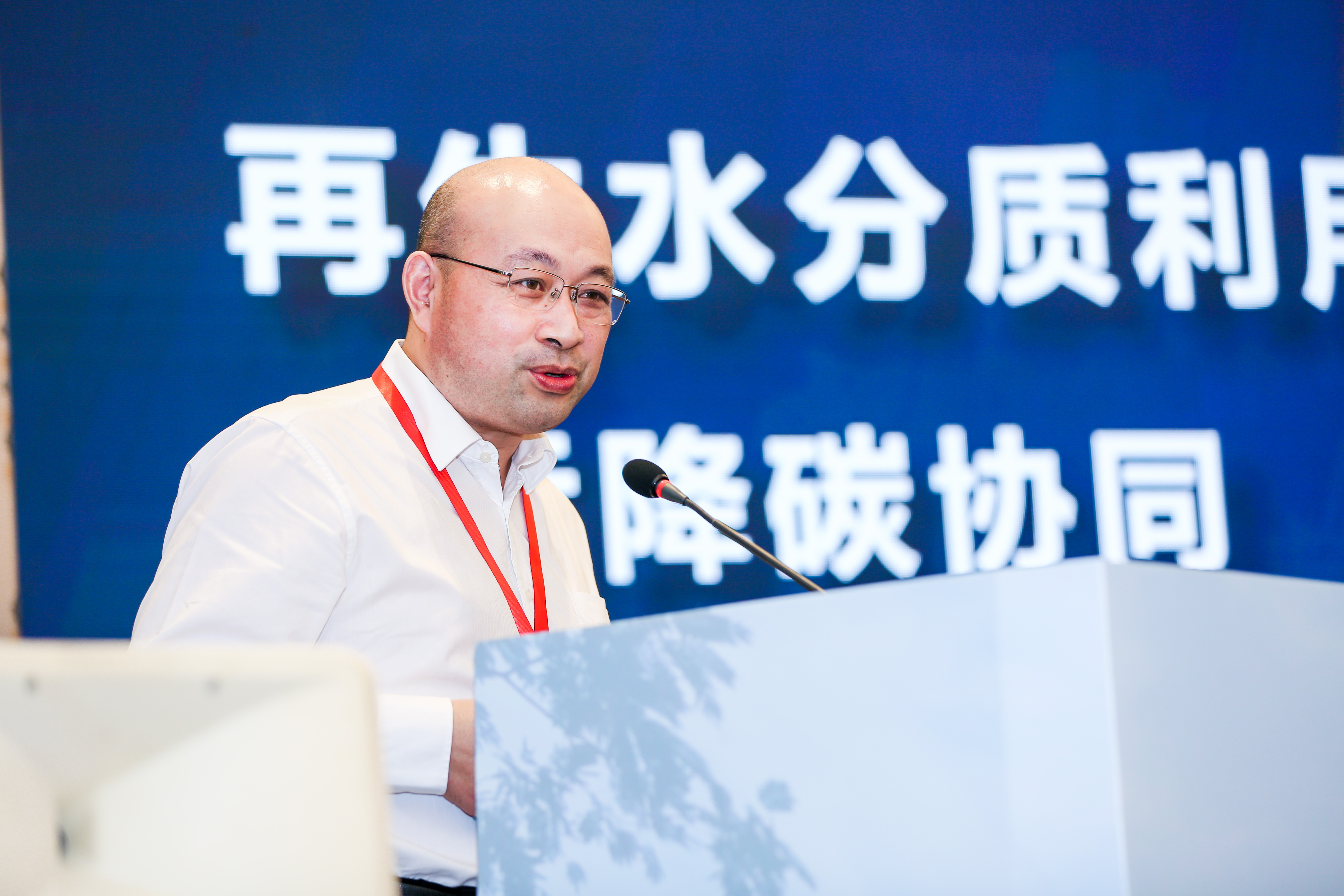
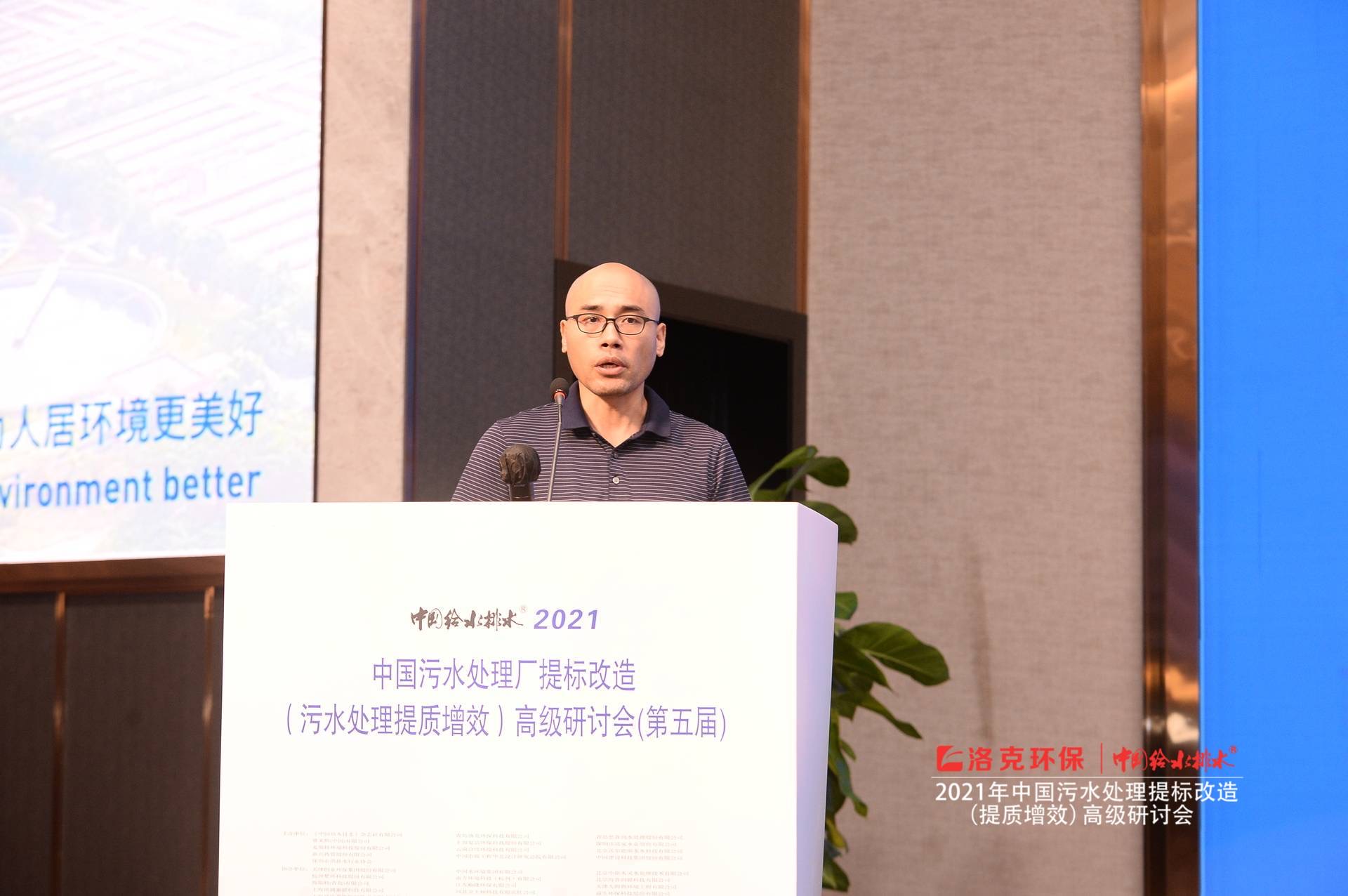
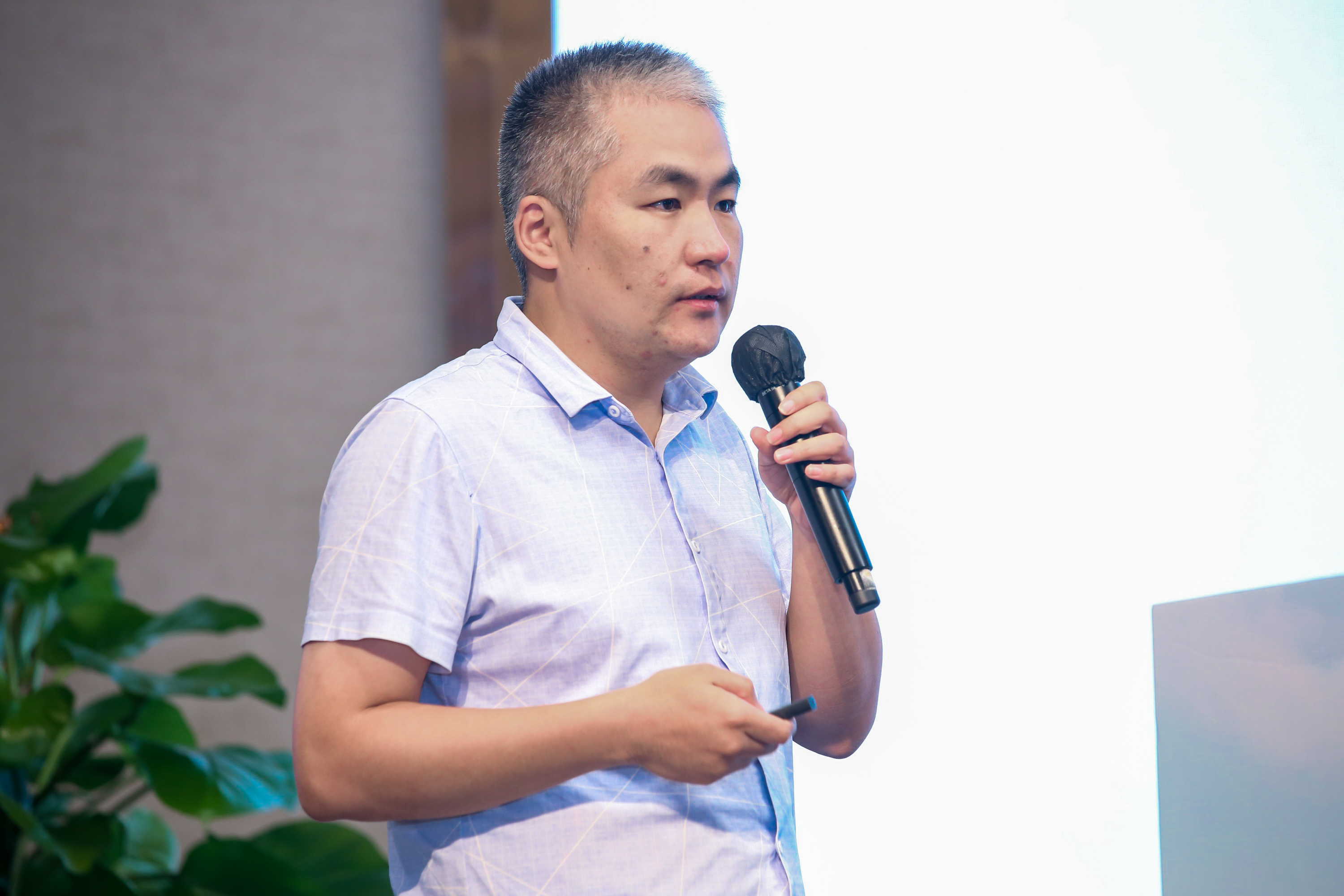
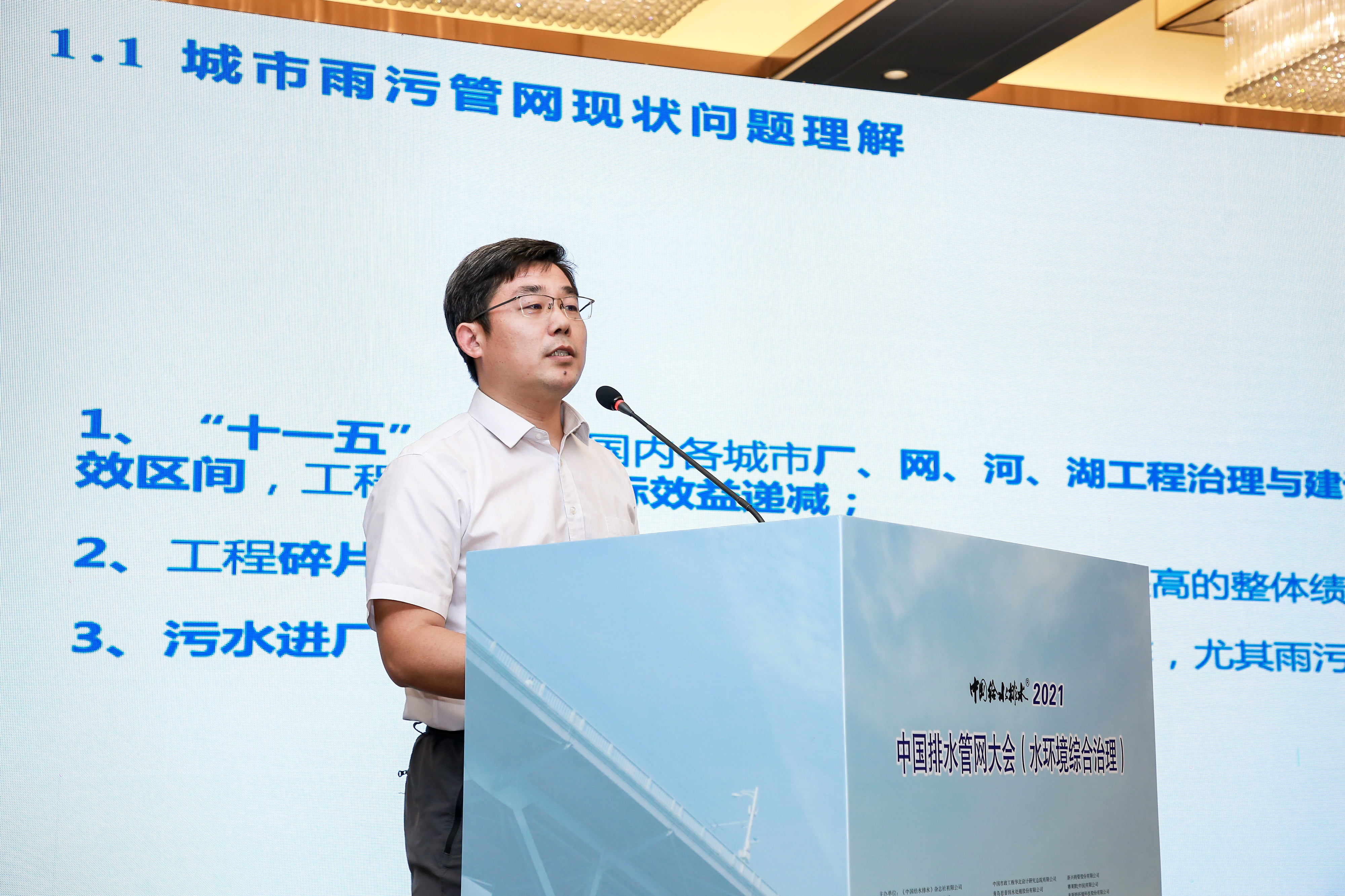
From October 20 to 22, the fifth “Water Industry Lecture” hosted by the China Water Industry Association CCES was held in Dongguan, Guangdong Province. At the same time, the fifth China water supply and drainage 2021 China sewage plant upgrading and reconstruction conference, drainage pipe network conference (comprehensive treatment of water environment), and sewage resource utilization (renewable water use) conference were also held. Focusing on “building a green water system and helping to achieve carbon neutrality”, at this series of meetings, domestic and foreign experts and scholars, water industry authorities and engineering and technical personnel in various fields were invited to jointly discuss the path and technology of sewage resource utilization and the realization of carbon peaking and carbon neutrality goals in the water industry.
BEWG was invited to make a strong voice at many conferences to have in-depth discussion with the industry about the exploration and practical cases of promoting the goals of carbon peak and carbon neutrality, so as to jointly seek the path of green development, and discuss pollution control, carbon reduction and coordinated development.
Water Industry Lecture: reclaimed water supply by different quality helps reduce pollution and carbon
Mao Jianhua, vice president of BEWG, was invited to deliver a speech at the opening ceremony of the “Water Industry Lecture”. He said that under the “3060” carbon peaking and carbon neutrality goals, water environmental protection enterprises are facing a historic change from pollution control to emission reduction. BEWG will start with improving quality and efficiency, innovation and change, innovating the paths and measures of carbon emission reduction in technology, mode and other aspects, and relying on the institute platform, strengthening cooperation with colleges, scientific research institutions and professional enterprises, accelerating technology transformation, and contributing to the development of the industry in the transformation process of production, learning, research and application; taking water resources as the core element, cooperating with other industries to provide greener and lower energy consumption water supply and drainage solutions, and tap the potential of resources and energy utilization in the water system. Meanwhile, BEWG will extend from serving cities to serving villages, from solving rural water supply and drainage problems to building rural environment infrastructure, coordinating biomass energy, garbage, water supply and drainage, sanitation, clean energy, building a life of the same quality in urban and rural areas, and exploring a valuable and quality rural property model to contribute professional strength to rural revitalization.
In making the theme report, Mao Jianhua made a keynote speech on “Synergy of Reclaimed Water Utilization by Different Quality for Pollution Reduction and Carbon Reduction” from the perspective of enterprise management and industry development. He said that in the context of carbon peaking and carbon neutrality, the environmental industry needs to have new actions and path exploration, face the shortcomings and pain points in the field of reclaimed water, and take the core output of “water resources” as the foundation, and take the utilization of reclaimed water by different quality as the key path to reduce pollution and carbon in the water treatment industry.
Mao Jianhua systematically introduced the calculation results of carbon emissions in the production and utilization of reclaimed water by BEWG from the enterprise side. On the basis of clarifying the three accounting principles of carbon emissions, BEWG, in combination with three UN technical guidelines, a number of national ministries and commissions, provincial guidelines and standards, has made methodology level construction, clarified the accounting methods, and conducted data accounting from two dimensions of the whole life cycle of water plant investment, construction and operation, and the whole business process of sewage collection, treatment and discharge based on the actual operation data of more than 100 water plants, clarified the carbon emissions in the production and utilization of reclaimed water, laying the foundation for the utilization strategy of reclaimed water.
Mao Jianhua pointed out that in the face of the diversified water needs of users, we should take reclaimed water as the core and build a second water source for treatment by different quality. In addition, we should establish a more flexible treatment and utilization system of “supply based on demand” to realize the differentiated utilization of reclaimed water for different reuse purposes; change from operation to management, realize energy conservation and consumption reduction, reduce indirect carbon emissions, and finally realize the transformation from environmental cost to resource value with a lean operation mode.
Finally, combined with the research results and practice of BEWG, Mao Jianhua put forward three thoughts and suggestions to effectively promote the utilization of reclaimed water by different quality:
First, it is to carry out pilot construction of flexible water supply reclaimed water plants, build a “reclaimed water plants + key customers” co-construction pipe network model, and assess and price the discharge standards and reuse standards respectively, so as to speed up the use of reclaimed water;
Second, it is to appropriately relax the water quality indicators, and strengthen the ecological utilization of reclaimed water on the basis of increasing ecological indicators;
Third, it is to take energy consumption and carbon emission as the necessary contents of design review and examination, implement the “integral” system of reclaimed water use indicators, and finally establish relatively accurate and perfect design and analysis of energy consumption and carbon emission, so as to ensure the process design and operation mode of low energy consumption and low emission.
Upgrading and reconstruction conference: talking about the actual cases of BEWG
At the 2021 China Sewage Plant Upgrading and Reconstruction Conference, Wu Yunsheng, deputy chief engineer of BEWG Water Products Center, made a keynote speech “Decision-making of Upgrading, Quality Improvement and Standard Renovation of Sewage Plant with BEWG Characteristics”. He elaborated on the actual experience of upgrading and reconstruction of sewage treatment plants with BEWG characteristics from four aspects: the competition over standards, the decision-making of reconstruction routes, the cases of reconstruction projects and the transformation of products.
Combined with the national effluent discharge standards, Wu Yunsheng systematically introduced the decision-making routes for the upgrading and reconstruction of BEWG water sewage plants, which involves a series of processes of “target determination - diagnostic analysis - scheme comparison and selection - engineering design - engineering evaluation”, and clarified that the transformation of sewage plants is divided into rigid transformation and elastic transformation. He made a detailed and comprehensive exposition on the transformation decision-making, transformation methods, operation effects, etc. of the upgrading and transformation projects through Guangdong Shenzhen Hengling Sewage Treatment Plant, Jiangsu Danyang Water Sewage Treatment Plant, Xinjiang Midong Sewage Treatment Plant, Liaoning Jinzhou Haicheng Sewage Treatment Plant, Jiangsu Kunshan North District Sewage Treatment Plant and other cases of the Group.
On this basis, Wu Yunsheng concluded that the core of the reconstruction technology of BEWG characteristic sewage plant is top-level planning, problem diagnosis, comprehensive research, source control, strengthening the front end, biochemical priority, dedicated pool, combination of rigid and flexible measures. Finally, he introduced the transformation process of BEWG products and product construction such as water plants, and proposed that under the thinking of product transformation, BEWG is willing to make progress and grow together with the colleagues in the same industry.
Upgrading and reconstruction conference: focusing on sewage treatment plant to improve quality and efficiency
Wei Bin, Department Manager of the Sewage Department of the Operation and Management Center of BEWG, delivered a keynote speech on the “Direction and Case Sharing of Quality Improvement and Efficiency Improvement for Sewage Treatment Plants under the Background of Carbon Peaking and Carbon Neutrality” at the 2021 China Sewage Plant Upgrading and Reconstruction Conference. He shared the exploration and practice of BEWG in terms of the operation technology, highlighting the operation technology level and craftsmanship spirit of BEWG as a leading enterprise in the industry.
Wei Bin first analyzed the ways of carbon emission during the operation period of the sewage treatment plant and the ways and proportion of indirect carbon emission in various sewage treatment links under the background of low-carbon operation of sewage treatment industry; explained five major problems existing in improving quality and efficiency, including the contradiction between water quality standards and costs, cost addition mechanism, pipe network leakage and septic tank, difficult replication and promotion of operation technology, and insufficient upstream and downstream coordination. Based on this, he described the beneficial exploration and positive attempts made by BEWG in promoting the industry to move towards high-quality development by focusing on the five aspects of lean management, intelligent control, process improvement, equipment energy conservation, resource/energy recovery, and provided the specific directions and cases for improving quality and efficiency.
Wei Bin mainly introduced the positive exploration and practice of BEWG in intelligent control. The unattended key links and the infinite replication of expert experience can be realized through the intelligent control of the whole process. BE-EMR, the industry’s first intelligent control robot independently developed by BEWG, systematically decomposes the “know how” that can be sensed but not expressed in words by experts, and completes the logic and programming, so that the system can have the self-learning and adaption functions, and can respond to changes in complex conditions. It has become a hard core “black technology” that helps the water plants meet the emissions standards, reduce carbon and increase efficiency. Once launched, it has attracted widespread attention.
Water Environment Conference: improving the efficiency of urban rainwater and sewage pipe network system
At the 2021 China Drainage Network Conference (Water Environment Conference), He Hongchang, manager of the Product Development Department of the Water Products Center of BEWG, made a keynote speech on the “Thinking and Practice of Improving the Efficiency of Urban Rainwater and Sewage Pipe Network System and Controlling Overflow Pollution”.
He Hongchang pointed out that the construction speed of sewage collection and treatment plant network has been rapid since the “Eleventh Five Year Plan”, but the quality problems such as pipeline mixing and mismatching, inflow, infiltration and so on are superimposed, with the lack of operation and maintenance management, which leads to “system synthesis fallacy”, resulting in low efficiency of urban plant network system, among which the low concentration of sewage entering the plant and overflow pollution are particularly prominent. Under the guidance of the “Ten-point Water Plan”, with the construction of plant networks and the comprehensive treatment of water environment, the problem of direct sewage discharge in dry days has been preliminarily solved, and the water quality of rivers and lakes in dry seasons has been improved, while overflow pollution has increasingly become a key factor in the periodic deterioration of water environment and the blackening of water bodies. He said that under the overall performance orientation, we should coordinate the elements of plant, network, river and lake assets, and systematically promote the efficiency increase of rainwater and sewage pipe network and overflow pollution control.
He Hongchang, combined with the specific practice and achievements of BEWG, shared his thoughts on the efficiency improvement of rainwater and sewage pipe network and overflow pollution control from four dimensions: evaluation of the pipe (plant) network system to provide the basis for improving efficiency of the pipe network system and efficient control of overflow pollution; based on the principle of total amount control, the recent source sponge reduction + multi-level intelligent diversion + outlet treatment + slightly polluted water purification will be performed to realize the diversion of clean water and sewage and effectively improve the incoming concentration of the sewage plant; for the overflow pollution control, high load operation of the water plant + multiple regulation and storage + overflow treatment and purification are carried out to improve the redundancy of the plant network system and the rigidity to deal with the overflow; intelligent scheduling of plant network, rivers and lakes is carried out to improve the synergy efficiency of stock assets, and maximize the system efficiency.
He Hongchang finally said that the existing facilities of urban plants, networks, rivers and lakes should be coordinated, and attention should be paid to the improvement of quality and efficiency of pipe network stock and the upgrading of operation management, so as to avoid falling into the “engineering trap”, and gradually promote the standard governance of pipe network and other related facilities based on urban renewal. Meanwhile, he suggested to further improve the relevant policies and standard system of overflow pollution control, and properly carry out the connection of standards. Especially for overflow sewage treatment, all regions need to establish reasonable discharge standards according to local conditions to provide support for overflow sewage treatment.
It is a long-term undertaking to achieve the goals of carbon peak and carbon neutrality, which requires promotion of the whole society through the overall strength by integrating the concept of “green priority” into various scenes including space, ecology, resources and life, optimizing the existing economic system, and truly forming a high-quality development pattern. In the future, BEWG will continue to give full play to its professional advantages, concentrate resource elements, commit to scientific and technological R&D and the promotion of new technologies, continue to build excellent operational capabilities, unswervingly follow the high-quality development path of ecological priority, green and low-carbon, comprehensively facilitate the continuous promotion of the carbon peaking and carbon neutrality goals, and continuously enhance the sense of gain, happiness and security of the majority of residents, so as to provide strong support for building a great modern socialist country in an all-round way.
More
-
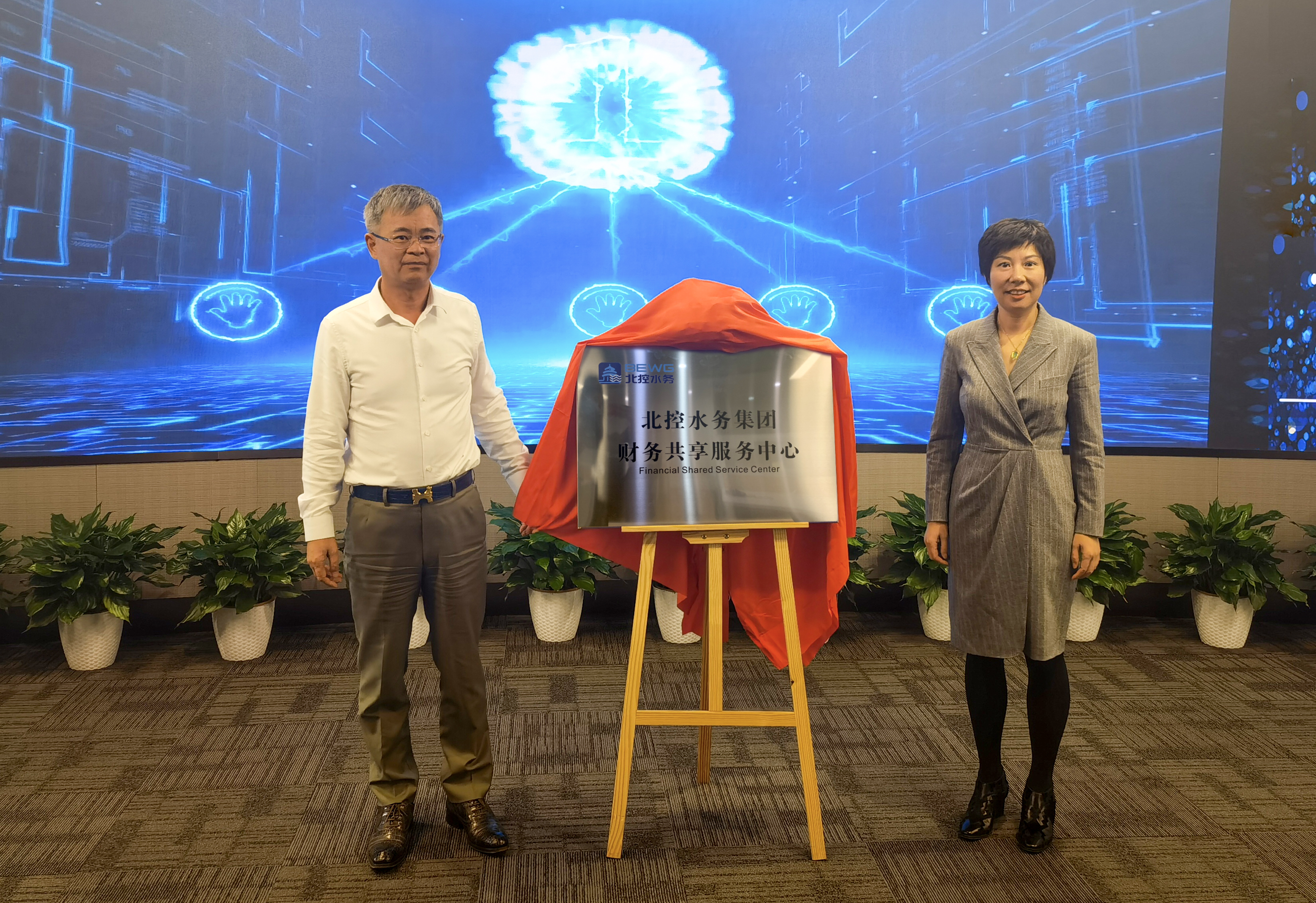
Set the Sail of Dream, Co-create Splendor! The Financial Sharing Service Center of BEWG is Formally Launched
-
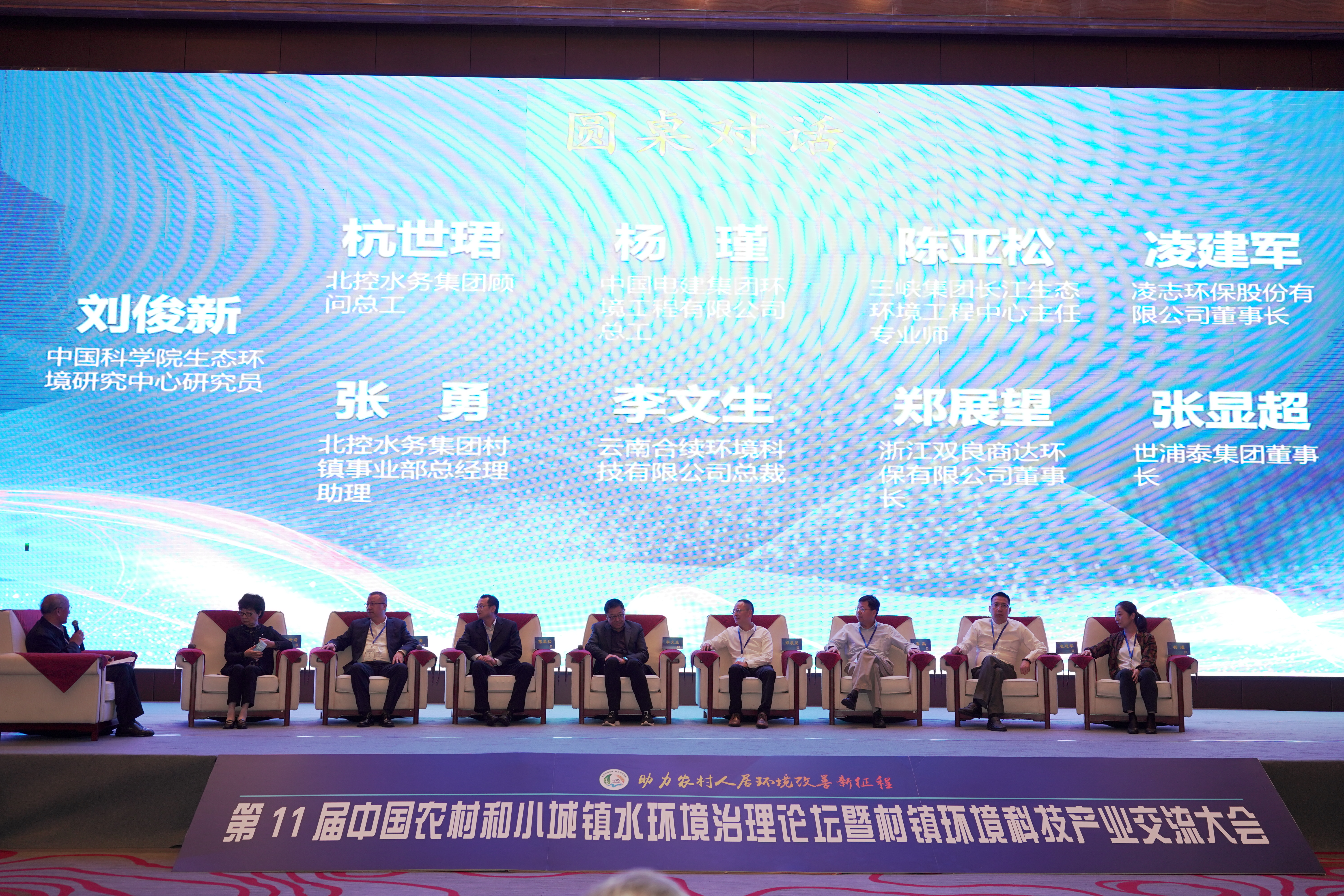
Improve the Living Environment! BEWG and Industry Experts Discuss about New Orientations of Agricultural Pollution Governance
-
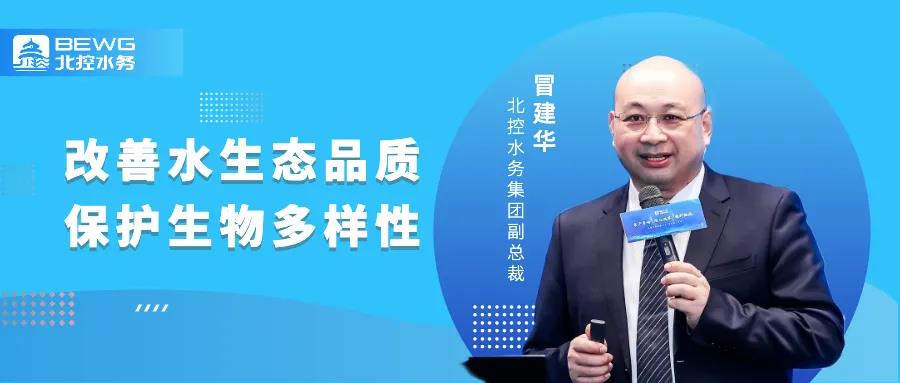
Mao Jianhua from BEWG takes you to explore biodiversity conservation







